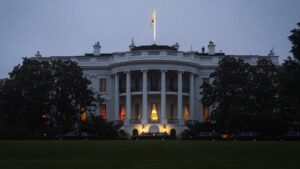U.S. Decision to End TPS for Afghan Nationals Sparks Controversy and Concerns
The Department of Homeland Security (DHS) has announced a significant policy change that could affect thousands of Afghan nationals currently in the United States. The decision not to renew Temporary Protected Status (TPS) for these individuals means that they could face deportation as early as May 20. This move has ignited a debate over the status and safety of Afghans who sought refuge in the U.S. amid turmoil in their home country.
TPS is a form of protection offered by the U.S. government to individuals from countries facing dire conditions such as armed conflict or natural disasters, allowing them to stay and work in the U.S. without fear of deportation. As of September 2024, more than 9,000 Afghans were shielded under this status. The Biden administration initially granted TPS to Afghan evacuees in 2022 in response to the chaotic situation following the U.S. troop withdrawal and the subsequent Taliban takeover. In 2023, the status was extended, acknowledging the ongoing dangers in Afghanistan.
However, a recent review by DHS Secretary Kristi Noem concluded that Afghanistan no longer meets the criteria necessary for TPS designation. Tricia McLaughlin, DHS assistant secretary of public affairs, stated, “The Secretary determined that Afghanistan no longer continues to meet the statutory requirements for its TPS designation and so she terminated TPS for Afghanistan.” This decision followed consultations between the U.S. Citizenship and Immigration Services (USCIS) and the Department of State.
The DHS decision has been met with criticism from various quarters, including Shawn VanDriver, president of the nonprofit #AfghanEvac, who argued, “The conditions on the ground haven’t improved—they’ve worsened.” He emphasized that many Afghans who have started new lives in the U.S. are being told they “don’t matter,” calling the decision “cruel” and “chaotic.”
Afghan nationals who assisted the U.S. during its lengthy military engagement in Afghanistan have primarily resettled in the U.S. through programs like the Special Immigrant Visa (SIV) and the U.S. Refugee Admissions Program. Nonetheless, some are still navigating the complex process of obtaining SIV status. Andrew Sullivan, executive director of No One Left Behind, highlighted the issues these individuals face in light of the DHS decision. “Many of these allies completed the requisite substantial and valuable service to U.S. national security, yet are still in processing for an SIV because of documents and connections lost in the chaos of the U.S. withdrawal,” he explained. “This decision throws our allies into harmful uncertainty.”
Since President Trump’s return to office, TPS has been a focal point in the administration’s immigration policy overhaul. Recently, DHS attempted to terminate TPS for Venezuelans, a move that was temporarily halted by a federal judge. U.S. District Judge Edward Chen in San Francisco noted the potential for “irreparable harm” to Venezuelan TPS recipients and questioned the lack of “real countervailing harm” by maintaining TPS for them.
As the debate over TPS continues, the future remains uncertain for many Afghans who have sought safety and stability in the United States. The implications of this policy shift are being closely watched by advocates and policymakers alike.
This article was originally written by www.npr.org






